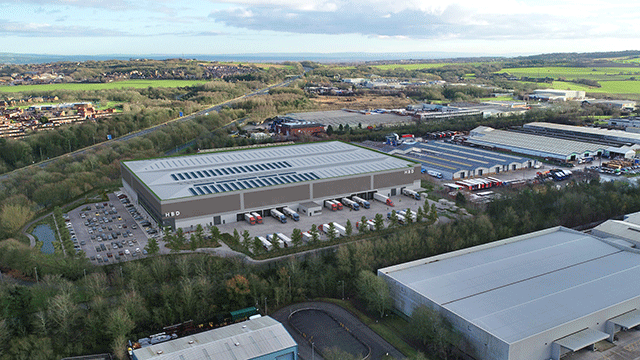Regional cities are setting ambitious targets, but more work is needed to reach net zero, write Elaine Rossall and Jeremy Kelly.
The momentum to declare climate strategies has been accelerating for companies based in the UK, both in terms of the number of companies and the footprint they occupy. This has been magnified by the pandemic, with occupiers increasingly considering the wider environmental, social and corporate governance principles of the buildings they use and their location, as well as impact on health and wellbeing. Space occupied by companies that have committed to science-based targets more than tripled between 2018 and 2020 to stand at around 4.4m sq ft or 3% of the total office stock across the “core eight” UK regional markets identified by JLL.
Occupiers demand green
As we enter the recovery phase, it is becoming increasingly evident that companies based across the UK do not want to consider occupying environmentally damaging buildings. Proximity to green space, accessibility by bicycle or public transport, and amenity offer will also be vital considerations.
There will be an increasing prevalence of corporate mandates towards sustainability, with Building Research Establishment Environmental Assessment Method accreditation becoming a more prominent deciding factor. JLL’s Responsible Real Estate Survey of more than 1,000 investors and corporate occupiers shows that 45% of commercial real estate respondents already prioritise building credentials such as BREEAM, and another 40% expect to do so by 2025.
Despite the appetite, pace of delivery is not keeping up with accelerating demand, in part due to the long lead in times to deliver new space. The next wave of sustainable buildings will target net zero carbon but there are currently no new-build net zero carbon buildings in the core eight which meet industry frameworks for both embodied and operational carbon, such as that of the UK Green Building Council.
Across the key regional market pipeline, only six new buildings of over 100,000 sq ft have been identified that are targeting net zero carbon. Rental levels have a part to play in this equation, and there is evidence that higher sustainability-rated buildings in the UK regional office markets achieve higher rents and let more quickly than non-sustainable offices. However, where the market is not deemed to sustain higher rents, it becomes more challenging to develop anything above the standard that meets the minimum requirements set out by local planning authorities.
Ahead of the curve?
Despite this, change is accelerating as city authorities across the UK set bold commitments to move to a net zero economy, ahead of national targets. Some authorities are more ambitious than others, but most of the UK’s largest regional cities (such as Birmingham, Bristol, Edinburgh, Glasgow and Leeds) have set a pathway to be net zero carbon by 2030.
The reality is that these ambitious emissions targets simply won’t be achieved without a proactive programme to significantly reduce embodied and operational carbon emissions from buildings, which can be responsible for as much as 60-70% of emissions in some cities.
Buildings have a critical part to play in decarbonisation, and there is recognition that city administrations are not currently doing enough to decarbonise their built environments. In JLL’s Responsible Real Estate Survey, only 29% of real estate investors and occupiers believe that top-tier cities are currently taking sufficiently bold action to mitigate climate risk. Policies across UK cities are still relatively modest, such as requiring larger new commercial developments to have a minimum standard of BREEAM Excellent or Very Good, while some authorities, such as Bristol, are taking proactive steps to address the emissions from their own commercial spaces.
However, administrations are now recognising that policies for the built environment do not go far enough, and we are beginning to see a rapid escalation in climate action policy, which will have deep implications for the property sector. City governments will look to a wide armory of tools to deliver a decarbonised and climate-resilient built environment. Far more stringent regulations will undoubtedly become increasingly important to force the pace of change in building energy efficiency, green energy use, adoption of circular principles and embedding climate resilience.
Retrofitting of the existing building stock to net zero carbon is going to be central to decarbonising a city’s economy. We will see city governments leaning into partnerships with key stakeholders to achieve sustainability goals. It means that landowners, investors, developers and occupiers will need to play a more proactive role in contributing to a city’s sustainability targets. For example, Bristol’s City Leap Energy Partnership will involve an integrated approach of the whole community, and the council will look to work with other cities and partners to share learning and knowledge.
Glasgow’s Climate Emergency Implementation Plan recognises that collaboration will be essential across multiple partners to expedite action. Meanwhile, Manchester’s Climate Change Agency, which brings together over 60 organisations, will have collective responsibility for more than 20% of the city’s emissions.
Green or brown?
Whatever the route to decarbonising the built environment, greater regulatory enforcement combined with growing ESG commitments will increase pressure on the real estate industry to deliver low-carbon, healthy and resilient buildings. Aiming for positive environmental and social returns will be as much about value preservation as value creation – a matter of risk mitigation and resilience. First mover advantage will support a “green premium”, but long term, it is the potential for the brown discount or even asset stranding that should be top of mind. As Guy Grainger, JLL’s global head of sustainability services and ESG, has noted: “Green premiums are temporary, brown discounts are forever.”
Elaine Rossall is head of UK offices research and Jeremy Kelly is lead director for global cities research at JLL







